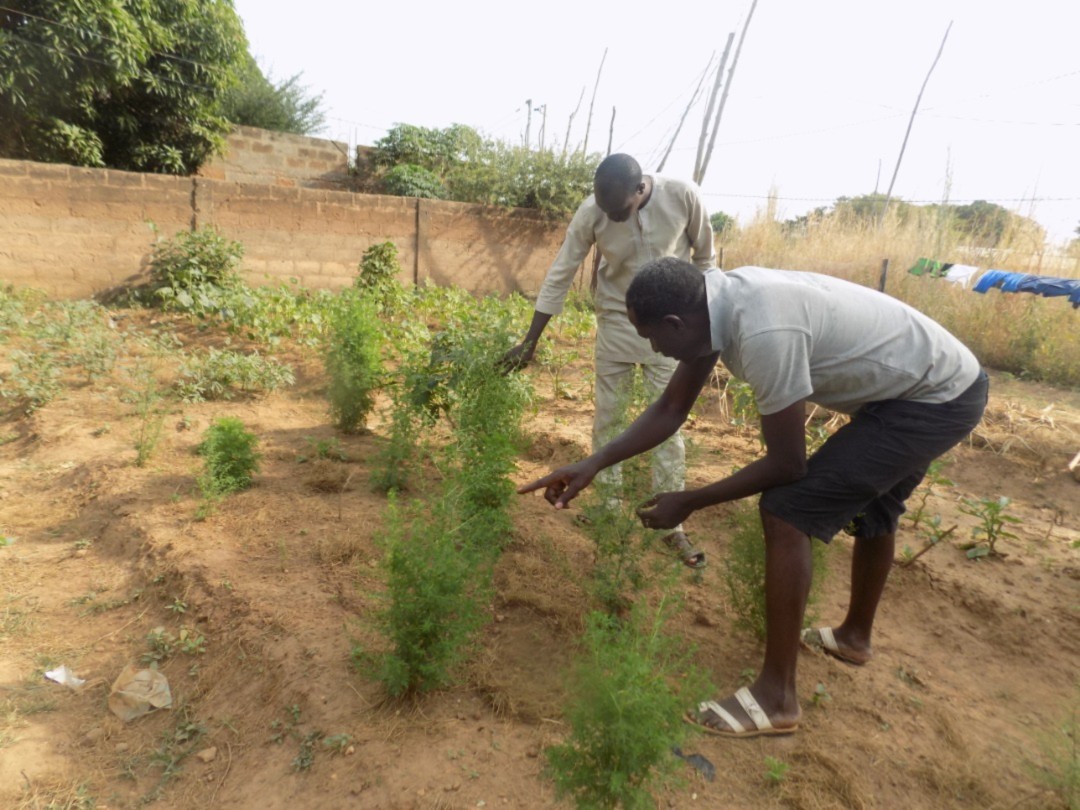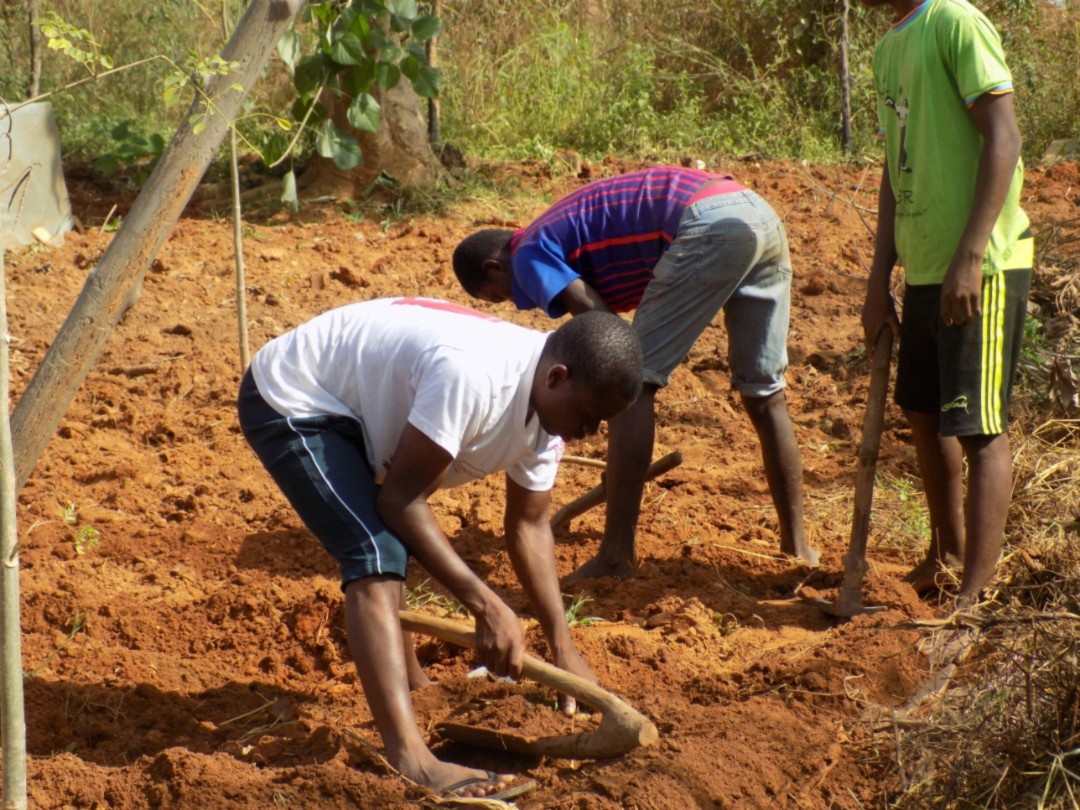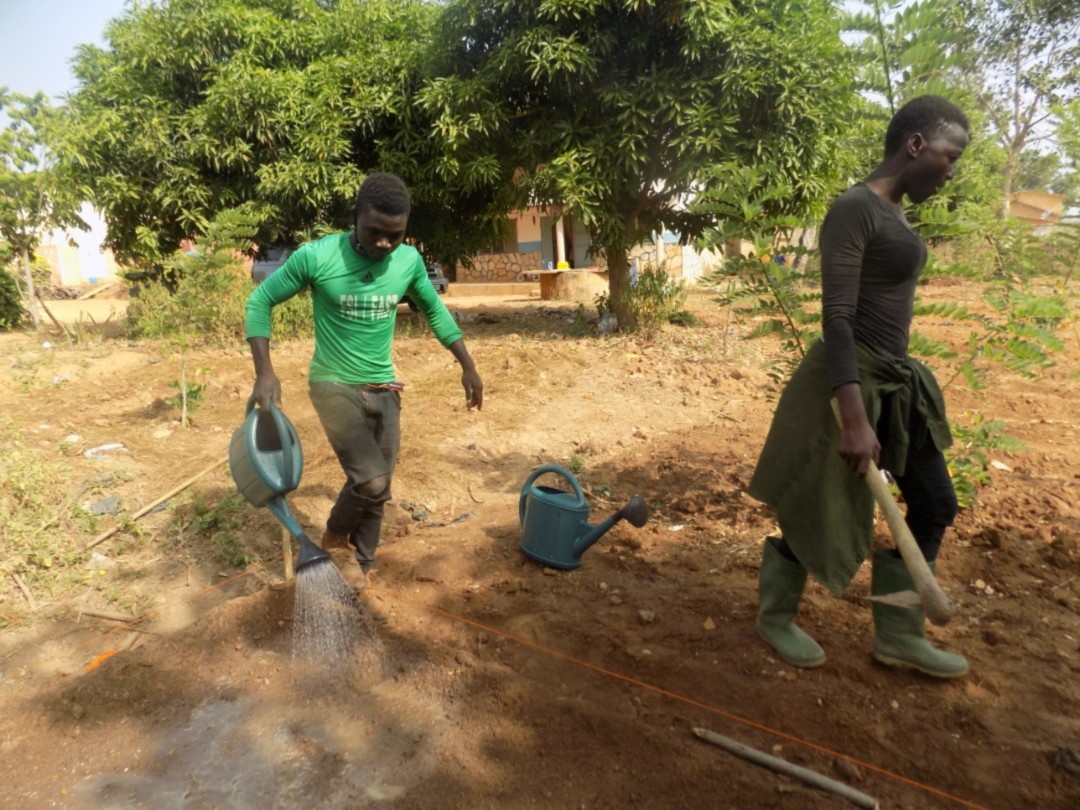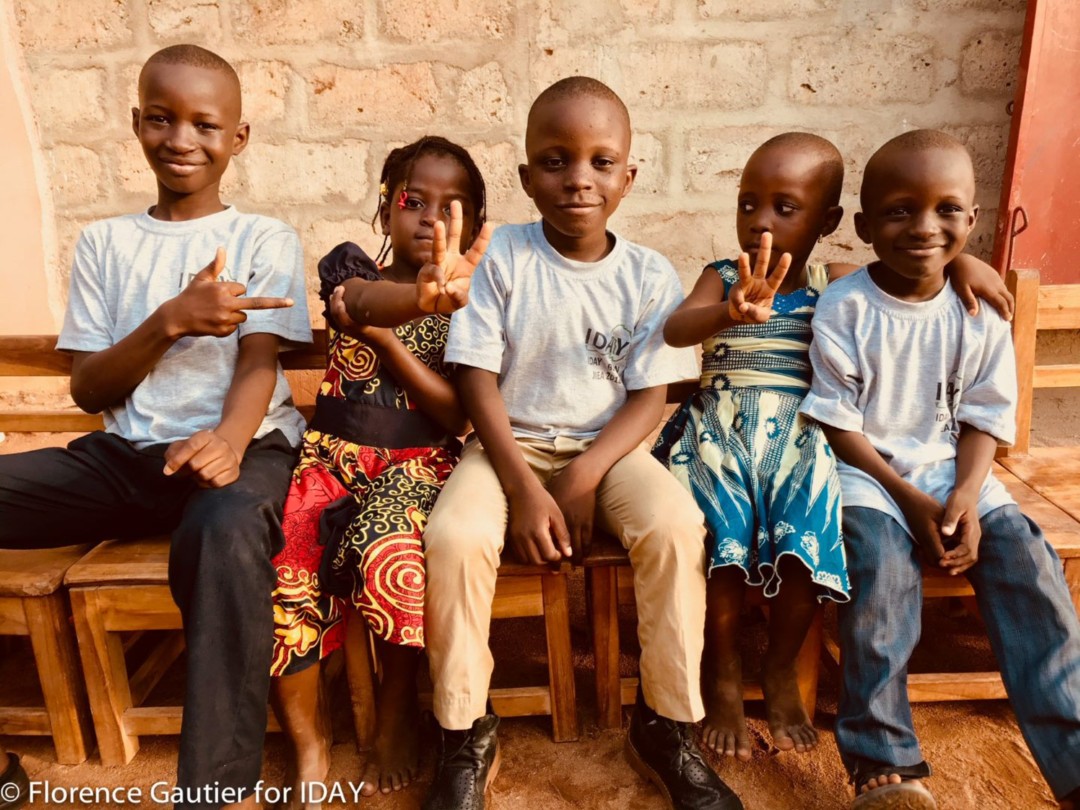Organic school gardens
The project aimed to provide 15 schools throughout the country with organic school gardens, also growing medicinal plants, to improve students’ nutrition and to combat malaria and other infectious tropical diseases. It looked to improve the health and attendance of students and teachers thanks to produce from the school gardens, which would be used in the newly established school canteens, ultimately improving the students’ academic results. Excess produce was to be sold and the funds used towards school operating costs. Over 9,656 students and teachers were educated in the importance a of a balanced and nutritious diet. Two demonstration farm schools were established in the north and south of the country, producing neem, tchayo (African basil), lemongrass, tiger grass, sweet wormwood (Artemisia annua), moringa and traditional medicinal plants. 15 schools now have functional kitchen gardens and ten of these have improved their school canteens using fuel-efficient stoves. The ecological, fuel-efficient stoves have inspired neighbouring schools to adopt this model. The nutritious meals provided at the school canteens are one of the principal motivators for keeping children in school, particularly in rural settings.
IDAY International is an international network of 19 national coalitions of NGOs bringing together 600 African civil society organisations founded in 2008. It focuses on access to quality education for children and youths. The project is being led by IDAY-Benin in the field.
Type
Health / Environment / EducationDuration
November 2018 – October 2021Location
BeninWith whom
IDAY International
Website






Benin
Population
11.2 million (2017)
Per Capita Income
USD 800/year (2017)
Poverty rate *
40% (2015)
Literacy rate
33% (2016)
Human Development Index
163rd out of 189 countries (2018)
Benin has implemented important economic and structural reforms over the past decade leading to notable improvements in human development. Despite moderate GDP growth, 4 to 6% per year over the past two decades, poverty remains widespread and on the rise. Significant challenges remain in the health sector, with child and maternal mortality remaining high. With one of the lowest literacy rates in the world (33%), the quality of education still requires improvement. The share of public expenditure for the health and education sectors has significantly dropped over the past two years (from 7 to 4% and from 23 to 4.4%). Efforts are needed to ensure equity on geographical distribution and in particular better management of the two sectors.
Sources: World Food Program, UNICEF, World Bank, 2016 Human Development Report, Human Development Indices and Indicators (2018 Statistical Update)
*The percentage of the population living below the national poverty line.